The Prodigal

Brief Synopsis
Cast & Crew
Richard Thorpe
Lana Turner
Edmund Purdom
Louis Calhern
Audrey Dalton
James Mitchell
Film Details
Technical Specs

Synopsis
In the seaport of Joppa in 70 BC, chaos erupts in the marketplace as a guard, Rhakim, pursues Asham, a mute runaway slave. A young Jewish man, Micah, intervenes and buys the slave's freedom, but Asham is injured when the departing Rhakim throws a spear at him. Micah and his older brother Joram bring Asham back to their family farm, and their father Eli tells Micah he is arranging his betrothal to Ruth, the beautiful daughter of their neighbor Tobiah. One night, Micah is outraged to see a caravan of infidels from Damascus worshipping idols in the marketplace of Joppa. Micah spies Rhakim and follows him into a tent, where he encounters the powerful Nahreeb, high priest of Baal, who identifies himself as Asham's former owner and offers to buy him back for many times what Micah paid. Micah refuses, then watches, entranced, as the alluring Samarra, the high priestess of Astarte, performs devotions to the pagan goddess. Micah vows that he will have Samarra at any cost, and Nahreeb confides to Rhakim that he is planning revenge against both Asham and Micah. Tormented by his obsession, Micah asks Eli for his portion of the family's wealth so that he may pursue Samarra. Eli angrily strikes him, but later relents and gives Micah half his portion, as well as his blessing. After saying goodbye to his father and brother, Micah calls on Ruth and sadly ends their betrothal. Meanwhile, at the temple of Baal and Astarte in Damascus, Samarra tutors a little girl named Yasmin, the future high priestess. Nahreeb meets with the moneylender Bosra and discloses his plan to foment unrest among the desert tribes, then buy up the limited food supplies and use the people's desperation both to enrich himself and to win converts to Baal and Astarte. Damascus is soon gripped by famine, and Micah is appalled by the poverty when he and Asham arrive in the town. Micah sets up residence in Damascus, arraying himself in fine new clothes, buying a villa from Bosra and entertaining lavishly. After he is barred from the temple as an "infidel," Micah writes Samarra's name on the tinted wall where women sell themselves, and soon Samarra's slave Elissa arrives to escort him to the high priestess' chamber. Intoxicating Micah with a kiss, Samarra bids him to obtain the pearl that Solomon bought for Sheba, and make a gift of it to Astarte. Scorning Samarra's belief in idols, Micah refuses. Asham wordlessly counsels his friend to return to Joppa, and Micah agrees and puts his estate on the market at half its value. Later, at a banquet given by Bosra, Micah plays cards with Nahreeb and spends all his winnings to buy Elissa for Asham. Bosra offers to sell Micah the pearl that Samarra desires, and Micah sends Asham to Joppa with a message for Eli requesting the remainder of his fortune. Over Joram's objections, Eli complies, but declares Micah dead to him from that day forth. Too desperate to wait for Asham's return, Micah borrows the money for the pearl from Bosra, paying little attention to the contract Bosra has him sign, and after Samarra places the pearl in Astarte's crown, she returns with Micah to his villa. After consummating their passion, Micah tells Samarra he wishes to marry her, but she is unwilling to surrender her rank as high priestess. When Asham returns from Joppa with the gold, Rhakim's men attack and burn the villa, stealing the gold and killing Elissa. Unable to repay his loan to Bosra, Micah and Asham are forced into slavery. One day, Samarra visits Micah in his cell and says Nahreeb will set him free if he will publicly renounce his god. Declaring her love for him, Samarra urges him to fake this proclamation, but Micah is firm in his faith. Determined now to be free, Micah and the other slaves devise a plan: with the help of an imprisoned barber-surgeon, Micah feigns death and is thrown into a pit to be eaten by vultures. After escaping from the pit, Micah seeks sanctuary with a group of beggars who are planning to overthrow the brutal pagan regime. Fierce fighting spreads throughout Damascus when the revolution begins, and Asham succeeds in killing Nahreeb. Bosra urges Samarra to flee, but although she sends Yasmin away, she refuses to abandon Astarte. The rebels storm the temple, and Micah sadly gives the order for Samarra to be killed. The shrine to Baal and Astarte is dismantled and the idols burned. Later, with the tyranny in Damascus vanquished, Micah and Asham return to Joppa. Eli joyfully embraces his son, and orders a feast to celebrate his return. At the banquet, Joram complains that his brother's extravagant reception exceeds any gift he has ever received, but Eli replies that Micah was dead but is alive again. Micah is delighted when Ruth comes to join in the festivities, and as Eli looks on proudly, the two brothers warmly clasp hands.

Director

Richard Thorpe
Cast
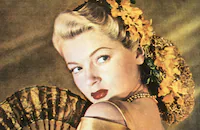
Lana Turner

Edmund Purdom

Louis Calhern
Audrey Dalton
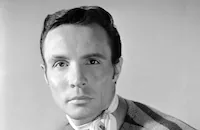
James Mitchell

Neville Brand

Sandy Descher

Walter Hampden

Taina Elg

Francis L. Sullivan

Joseph Wiseman
Sandra Descher
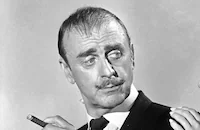
John Dehner

Cecil Kellaway
Philip Tonge
David Leonard
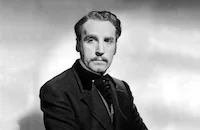
Henry Daniell

Paul Cavanagh
Dayton Lummis
Tracey Roberts
Jarma Lewis
Jay Novello
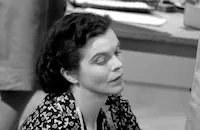
Dorothy Adams
Peter De Bear
Phyllis Graffeo
Patricia Iannone
Eugene Mazzola
George Sawaya
Richard Devon
Ann Cameron
Gloria Dea
John Rosser
Charles Wagenheim
Gordon Richards
Paul Bryar
Rex Lease
Dorothy Neumann
Jo Gilbert
George Selk
Rose Plummer
Frank Mills
Robert Stephenson
Booth Colman
Joseph Mell
George Lewis
John Cliff

Peter Mamakos
Zeev Bufman
George Keymas
Willa Pearl Curtis
Chester Hayes
Frank Mitchell
Almira Sessions
David Bond
George Robothom
Herbert Lytton
Charles Roberson
John Damler
Patricia Jackson
Diane Gump
Lila Zali
Lucille Maracini
Joanne Dale
Linda Danson
Gloria Stone
Patricia Denise
Cliff Lyons
John Hudkins
Louie Tomei
Tina Menard
Tom Steele
William Reeve
Loulie Jean Norman
Mary Dean
Mil Patrick
Joe Waring
Larry Chance
Jean Ransome
Argentina Brunetti
Jessie Arnold
Crew
Joe Breen Jr.
William Dorfman
Randall Duell
Alvord Eiseman
Cedric Gibbons
A. Arnold Gillespie
Henry Grace
Arvid Griffen
Sydney Guilaroff
Conrad Kahn
Bronislau Kaper
Harold F. Kress
Samuel James Larsen
Herschel Mccoy
Wesley C. Miller
Warren Newcombe
Rabbi Jacob Pressman
Alex Romero
Joseph Ruttenberg
Charles Schnee
William Tuttle
Edwin B. Willis
Maurice Zimm

Photo Collections
Film Details
Technical Specs

Articles
The Prodigal (1955)
In fact, The Prodigal is best seen today simply for the chance to gaze in wonder at the entire production, including Lana Turner. She had no desire to be in this film, finding the whole idea ridiculous. According to her daughter Cheryl Crane, Turner told makeup artist and friend Del Armstrong "If they're going to make me do this, I'm going to do it naked." Portraying Samarra, the High Priestess of Astarte, Turner wears beads and jewels attached with strings and metal plates, and, as Crane wrote, "she had all of the flesh-colored netting ripped out so that there was actual flesh on display."
As garish as the film's hundreds of costumes are, costume designer Herschel McCoy was actually in the midst of an auspicious career. He had started at Twentieth Century-Fox in 1936 and signed with MGM in 1951, earning two Oscar nominations along the way. He was 42 years old when he worked on The Prodigal, but it was to be his last film: he died suddenly, soon afterwards.
Young leading man Edmund Purdom had appeared in two other costume pictures--Julius Caesar (1953) and The Egyptian (1954)--but according to an internal MGM newsletter, he got the role here "because of his outstanding performance in The Student Prince (1954)."
The production was directed by Richard Thorpe and produced by Charles Schnee, who had written some excellent film noir dramas and one of the best films of Lana Turner's career, The Bad and the Beautiful (1952). But The Prodigal created a different, more unfortunate kind of magic, the kind that inspired critics in 1955 to blast the film as "overblown" and "neither thought-provoking nor heart-moving." Years later it inspired film scholar Jeanine Basinger to deem Turner's role "one of the silliest in film history."
"The design of The Prodigal," Basinger wrote, "gives the impression of various departments struggling with how to create the world of 70 B.C.--and forgetting to communicate with each other."
SOURCES:
Jeanine Basinger, Lana Turner
Cheryl Crane with Cindy De La Hoz, Lana: The Memories, The Myths, The Movies
Lou Valentino, The Films of Lana Turner
By Jeremy Arnold

The Prodigal (1955)
LAND OF THE PHAROAHS Highlights the DVD Release "Cult Classics 4: Historical Epics"
This 50s heyday is well where Warners drew for Cult Camp Classics Vol. 4: Historical Epics, part of a wonderful new series greeted with much excitement by film buffs. Each volume collects three films of somewhat tarnished reputation at a more-than-reasonable price (or a tad more if purchased separately), gives them a sharp new transfer and adds a bonus or two in the form of commentaries or trailers. That series name probably clues you that these aren't necessarily films you absolutely need to see-they're cult classics after all not classic classics-but they're often entertaining in spite of themselves. At least for stretches anyway since pacing has been a perennial problem with historical epics, the real point being the enormous sets, luxurious costumes and earth-shattering events instead of the kind of snap and pop that drove, say, screwball comedies. But then that's the nature of the game and you wouldn't expect that type of dialogue any more than you'd expect Bringing Up Baby to stop and admire the museum architecture.
Speaking of Howrd Hawks, the highlight of this set is definitely his 1955 Land of the Pharaohs, with a script by William Faulkner and starring Joan Collins. Such a pedigree on a film of this type means nobody would expect it to be good exactly but it's certainly not dull. Filmed partly in Egypt with what appears to be the legendary Cast Of Thousands, Land of the Pharaohs is basically about the construction of the Great Pyramid. Pharaoh Khufu has amassed quite a haul of gold, jewels and other treasure that he wants to take with him to the next life. To do that he needs a tomb that can't be robbed but nobody can design such a thing. Enter an architect from a recently enslaved race who will design such a clever, unbreakable tomb in return for the freedom of his people. It's all a bit stately and slow until the entry of Collins as the pharaoh's second wife. She would just as soon enjoy the jewels in the here and now and her greed sets in motion a twisting array of betrayal, skullduggery and murder.
Land of the Pharaohs doesn't skimp on the requisite scenes of big events such as a nearly endless army returning from war and an admittedly very impressive sequence of the enormous pyramid construction. You can just imagine the squads of assistant directors with megaphones and swarming support staff required to organize such scenes. But while Hawks doesn't pace the film as he might have two decades earlier he does lean towards forward momentum and giving the actors room for more naturalist delivery, even if it's occasionally a little discordantly colloquial. But better that where these sound reasonably close to real people than actors intoning leaden speeches.
That "script by Faulkner" statement is a bit misleading since the bulk was reportedly written by Harry Kurnitz (later Witness for the Prosecution) with Hawks collaborating without credit as usual. Harold Jack Bloom, who had just been nominated for co-writing The Naked Spur, was brought into the project later. With Faulkner in something of a slump due to money and alcohol troubles-despite having just completed A Fable which would win a Pulitzer though it's considered a minor work today-his contributions were often spotty. Working as they did in Italy provided its own distractions. A famous anecdote has the team discussing how to write dialogue for the pharaoh which Faulkner said he would do as a Kentucky colonel, Kurnitz thinking King Lear a better model and Hawks deciding they should do whatever they want since he would rewrite it anyway.
The Colossus of Rhodes (1961) is notable as the first feature of future spaghetti Western mastermind Sergio Leone. Or at least the first he received full credit for helming since typically for Italian productions of the time Leone's earlier filmography is a melange of assistant director positions, second-unit filming and completely uncredited work. In any case, he acquits himself well on Colossus though if you're hoping for hints of his future abilities you'll be looking in vain. The story concerns an Athenian who visits the "peaceful" island of Rhodes for the dedication of, yep, the Colossus only to find treachery, betrayal, rebellion and even true love. There's a lot of grand spectacle displaying classical wonders but then Italy pioneered this sort of thing back in the early silent era; 1912's Quo Vadis is often considered the first feature-length historical epic.
Colossus isn't terribly accurate in historical terms: there was no rebellion at this time (280 B.C.) and though historians argue about exactly where the Colossus stood or what it looked like they all are in complete agreement that it could never have straddled the harbor as depicted in the film or countless other images. The statue would simply have collapsed. Nevertheless, Leone gets good use out of the Colossus, showing it frequently in the background and setting a lot of action around its base. At one point there's even a sword fight with combatants balanced precariously on top of its arms. More impressive is the feel of a lived-in city that Leone creates. Though still intended to impress viwers there's not the usual sense that if you went through one of the doors you'd see nothing but scaffolding behind a façade.
This being a Leone film it's of course in widescreen, this time something call SuperTotalScope, a variation on TotalScope which was itself a version of CinemaScope. It's an odd tension for the images to run sideways when the thrust of the title's statue is upwards but then most of the action-whether fights or courtly entertainment-is spread horizontally. Leone does get mileage from filling the screen with people and objects as well as his Rhodes with numerous hidden passages (including an underground zoo!), caves, docks and museum-like living quarters for the characters to romp and scheme. There's not much of the complexity of his later films and Colossus does run a good 15-20 minutes too long but at least it delivers what it promises.
To see more of the camp promised in this set's title you don't have to go any further than The Prodigal (1955). It's a peculiar vehicle for top-billed star Lana Turner since she is allotted a fairly small amount of screen time, mostly spent looking regally statue-like (but not really statuesque) during pagan rituals. Bosley Crowther called it "pompous, ostentatious, vulgar, and ridiculous" so how could you not want to see it? The project certainly must have been a test for Hollywood screenwriters when confronted with the skimpy statement that the prodigal son of Jesus' parable "took his journey into a far country, and there wasted his substance with riotous living" (according to the Gospel of Luke, the only place the story appears). Out of such a sparse beginning we get-deep breath now-the film's Micah who hightails off to Damascus over his father's objections after one glimpse at the High Priestess of Astarte (La Lana in her first CinemaScope film) has knocked him head-over-heels into gotta-have-her lust, just as the High Priest of Baal intended after Micah saved a slave that the High Priest had other plans for.
And if any of that makes sense, well, there's even more. Some dastardly rulers intend to make a fortune by starving the populace and Micah's girl back home pines a bit but mostly that's padding. In fact if nearly all the film feels like padding, even the main romance, that might be because it is. The Biblical parable isn't about the wasting substance and riotous living but clearly the studio figured if the original moral is stuck into the closing few minutes then that gives them nearly two hours to do whatever else might draw in audiences. That of course would be Lana Turner and the genre's by now familiar massive set design and outlandish costuming. Turner wanders through gigantic temples of flames and peculiar idols while wearing masses of light-colored fabric now that is the point of The Prodigal. After all, we're expected to believe that merely one glimpse of Turner (her blondeness explained several times during the movie) will drive men just mad. Oddly enough the filmmakers went out of their way to portray her as something of a temple prostitute with frequent references to her, ah, dalliances and even lines like "I belong to...all men." This camp aspect lives up to the collection's title and might be one reason the film was such an influence on future Warhol genderbending superstars Candy Darling and Jackie Curtis.
If this wasn't enough director Richard Thorpe and his writers decided to add more, maybe to convince themselves they were doing a work of substance. Micah refuses to renounce his faith so they set up an entire spirit vs. flesh dichotomy and then Micah as a wealthy person gets involved with the oppressed masses so there's the class aspect as well. But really we're supposed to expect that of our movie heroes even if none of it amounts to much. Once again Hollywood portrays Jews as basically honorary Christians and viewers are supposed to take the badness of the pagan religion on just the filmmakers say since apart from a human sacrifice its adherants seem perfectly as happy as anybody else. (In an interesting side note, one of the production's pagan statues appeared in a Tarzan movie or two before eventually being transported to Delaware where years later city officials made the owner hide it from view.) In the end, though, The Prodigal is a weak effort, not really campy enough to justify much more than the tiniest of cult interest and too leaden to be even an efficient way to waste time.
Each disc in this volume of Cult Camp Classics, Vol. 4 includes a trailer and a commentary. For Land of the Pharaohs Peter Bogdanovich does the duty, assisted by selections from interviews he recorded with Hawks. Leone biographer Christopher Frayling does The Colossus of Rhodes and though he spends a smidgen too much time telling us what we're seeing on screen he's otherwise such a fount of information on the production and other Italian popular films of the time that you shouldn't skip his commentary. The Prodigal has a commentary by USC professor Drew Casper who really has a challenge in filling the time.
For more information about Cult Camp Classics, Vol. 4: Historical Epics, visit Warner Video. To order Cult Camp Classics, Vol. 4: Historical Epics, go to TCM Shopping.
by Lang Thompson
LAND OF THE PHAROAHS Highlights the DVD Release "Cult Classics 4: Historical Epics"
Quotes
Trivia
Notes
The opening credits conclude with the following Biblical inscription: "Though shalt have no other gods before me-First Commandment." Voice-over narration then explains that in the times before Christianity, most people worshipped many gods. The narration adds that "two of the most notorious" were the fertility gods Baal and Astarte, and notes that the film is based on the Biblical parable of the Prodigal Son. According to a January 1954 Los Angeles Times news item, Ava Gardner and Vittorio Gassman were originally cast as Edmund Purdom's co-stars. The news item also reported that some scenes would be filmed on location in the Holy Land, but The Prodigal was shot entirely on the M-G-M lot. Pre-production news items in Hollywood Reporter reported that Russ Tamblyn was testing for a top role, that Niall MacGinnis would make his American screen debut in the film and that English actor Robert Coote had been cast as the "Barber-surgeon." These actors did not appear in the final film, however.
The Prodigal opened to generally poor critical reception, with a number of reviews unfavorably comparing the brevity of the Biblical parable with the length of the film. Several critics also commented that the scantily clad Lana Turner would not have been out of place on the runway of Minsky's burlesque house. According to reviews, the film cost five million dollars to produce. A May 4, 1955 Daily Variety news item reported that, in the interest of diplomacy, all derogatory references to Damascus would be eliminated from the prints of the film sent to Syria. The Prodigal marked the last film project of costume designer Herschel McCoy, who was often credited simply as "Herschel." The designer died in February 1956.

Miscellaneous Notes
Released in United States Spring May 1955
CinemaScope
Released in United States Spring May 1955














